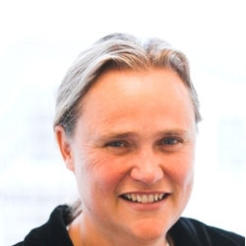Take care before you ride the wave of the Big Society, says Common Purpose chief executive Julia Middleton.
These are dangerous times for charities and the voluntary sector.
The current climate reminds me of a meeting I attended years ago in France, when I was trying to explain to a group of leaders from various sectors what the voluntary sector was in the UK.
"So you mean," said a local politician, "I could get the voluntary sector to deliver services to the community, avoid accusations of privatisation, withdraw the contract whenever I change policies, and not have to pay huge pension costs. I think we should have a voluntary sector in France."
This government has decided to celebrate the voluntary sector under the heading of ‘Big Society’. I keep getting requests to do talks, write papers, and take part in panels along the general theme of: ‘how to get your slice of the Big Society budget’.
I really believe that the challenge for the sector is how to ride this wave without letting it crush you. And it is going to require not just the business skills that leaders in the voluntary sector have acquired over the years but also good old - what I would call - campaigning skills.
Because if the voluntary sector becomes a cheaper long arm of government, it will cease to be the voluntary sector. Or the charitable sector, or the community sector, or the not-for-profit sector or social enterprise.
So what are these skills? They’re a mixed bag of deal-making, speech-making, networking, line-drawing, coalition building and, above all, timing. Mastering those tricks requires time and effort, and much of it spent on things you are never quite sure will be worth the effort until the agenda starts floating away from you. Or when it starts snowballing, leaving you in stranded in the middle, incapable of influencing anything.
I am not suggesting that anyone avoids riding the wave. I just think they should do so with a great deal of care. To avoid the charming flattery and an ocean of vast offers.
The third sector needs to survive for many elections ahead with brands and independence intact.
At a meeting the other day I said Common Purpose would not get tied up with a new initiative. I made that call - not because it wasn't a good idea, in fact it was very exciting - I just guard the independence of my organisation vehemently.
Everyone looked at me as if I was on another planet: all except one man. He just smiled, and after the meeting said that years ago he had been an intern at Demos where I had been on the board. He remembered me doing the same when Blair came to power. As he recalled: “I thought you were mad then; that this was the new wind that would blow for 150 years, it was the most exciting thing that had ever happened.” And how times have changed.
I would not relinquish my organisation’s independence then, and I will not now. And I deeply hope that my organisation, and other colleagues across the sector, are able to deliver a more active and engaged society while holding true to our vision and values.
Julia Middleton is chief executive of not-for-profit leadership institution Common Purpose









